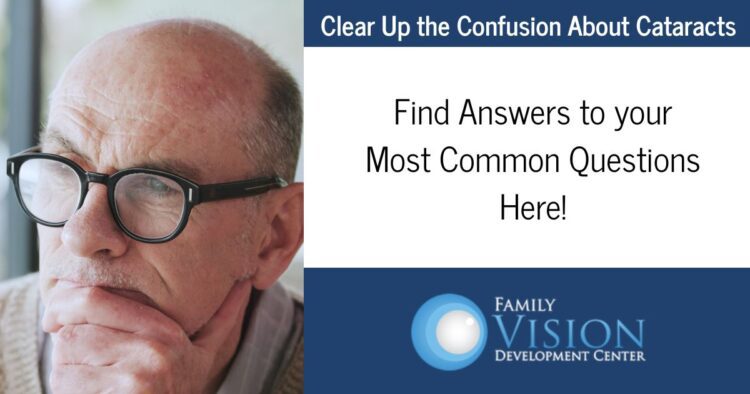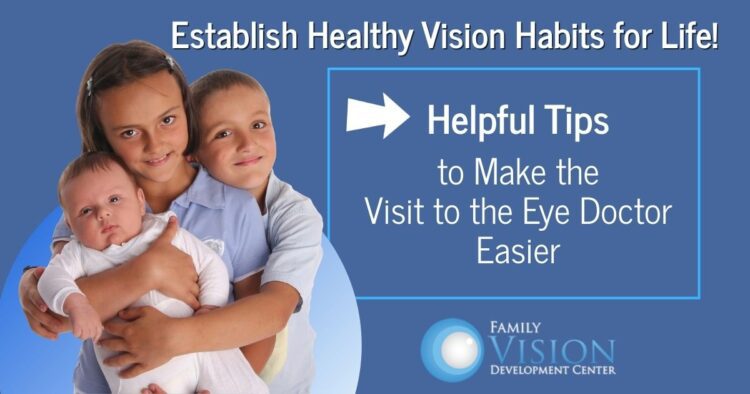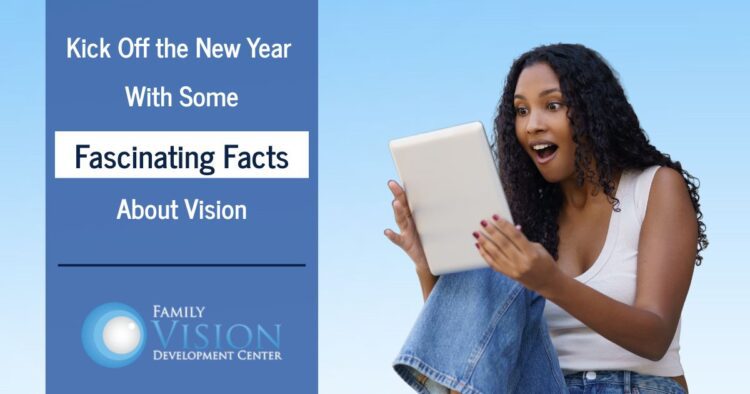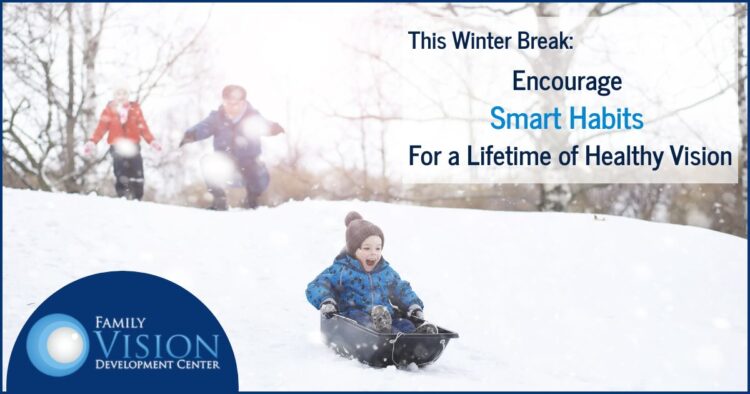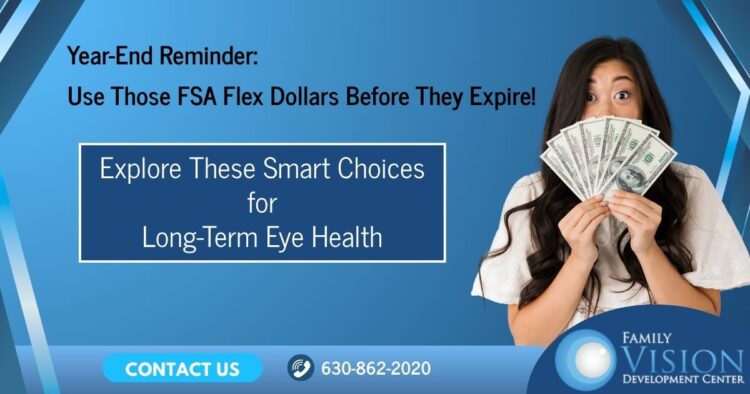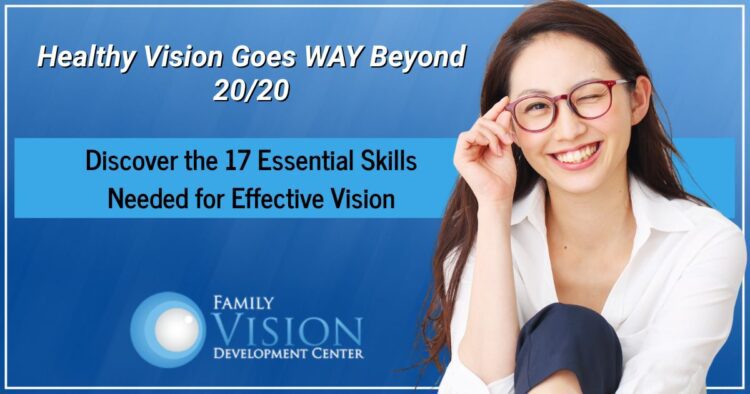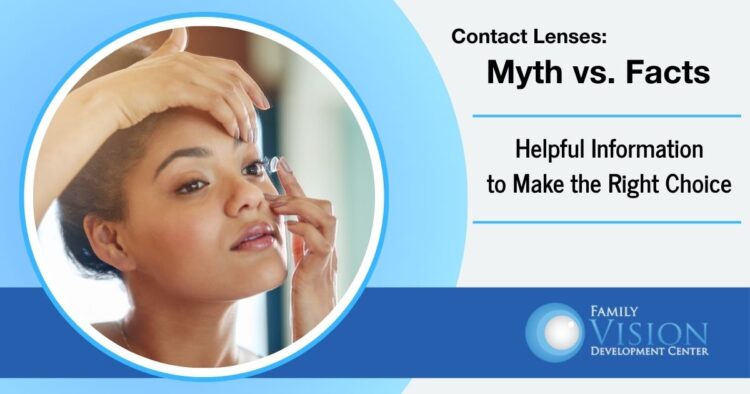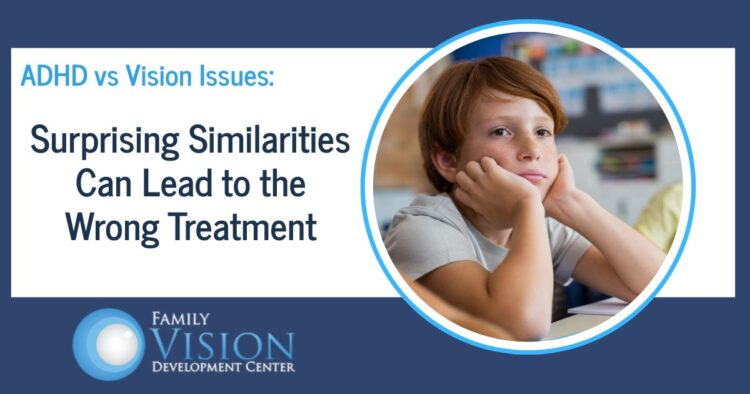Cataracts are one of the most common eye conditions affecting older adults. While most people have heard of cataracts, there is often confusion about what they are, how they affect vision, and when treatment is necessary. Here are answers to some of the most common questions our patients ask about cataracts.
What exactly is a cataract?
A cataract is a clouding of the natural lens inside your eye. That lens sits behind the colored part of your eye (the iris) and normally helps focus light so you can see clearly. When the lens turns cloudy, light can’t pass through as easily. You may notice blurred or hazy vision, more glare, and trouble seeing in low light.
Cataracts usually develop slowly over time, not overnight.
What causes cataracts to develop?
The most common cause of cataracts is aging. As the eye’s lens ages, proteins can break down and clump together, creating cloudy areas. Other common risk factors include:
- Prolonged exposure to ultraviolet (UV) light
- Diabetes
- Smoking
- Long-term use of steroid medications
- Eye injuries or previous eye surgery
- Family history of cataracts
What are the most common cataract symptoms?
Cataract symptoms often begin gradually and worsen over time. Common warning signs include:
- Blurry or cloudy vision
- Increased sensitivity to light or glare
- Difficulty seeing at night
- Colors appearing faded or yellowed
- Seeing halos around lights
- Frequent changes in eyeglass or contact lens prescriptions
Because these symptoms can also be associated with other eye conditions, a comprehensive eye exam is the best way to confirm whether cataracts are the cause.
Can cataracts be prevented?
While cataracts cannot always be prevented, certain lifestyle habits may help slow their progression. These include wearing sunglasses that block UV rays, eating a balanced diet rich in antioxidants, managing chronic conditions such as diabetes, avoiding smoking, and scheduling regular eye exams.
Is surgery always necessary?
Cataracts do not always require immediate surgery. In early stages, symptoms may be managed with updated eyeglasses, brighter lighting, or anti-glare lenses. However, if they begin to interfere with daily activities such as driving, reading, or working, cataract surgery may be recommended. Cataract surgery, which replaces the cloudy lens with a clear artificial one, is one of the most common and successful surgical procedures to restore vision.
Could they possibly go away on their own?
Unfortunately, no. Once a cataract forms, it does not clear up on its own or with eye drops, vitamins, or exercises. The lens will continue to get cloudier over time, although it can vary from person to person how quickly this happens. Stronger glasses or better lighting can help for a while. But as previously mentioned, surgery will likely eventually be needed once it progresses enough.
Regular Vision Exams at Family Vision Development Center Are Important for Cataract Detection
Routine eye exams are essential for detecting cataracts early, often before symptoms significantly affect vision. When you visit Family Vision Development Center for regular vision care, it allows us to monitor changes, recommend appropriate treatment, and ensure your eyes remain healthy as you age.
In addition to identifying cataracts, comprehensive vision exams can provide early detection of other vision problems like glaucoma, macular degeneration, and diabetic eye disease, which can all damage your vision without obvious early symptoms. Make vision a priority to protect your eyesight for as long as possible – schedule your appointment for a comprehensive eye exam by calling 630-862-2020.
Family Vision Development Center is a full-service vision center offering innovative vision therapy services, sports vision therapy services, post-concussive vision rehabilitation, comprehensive vision exams for eyeglasses and contact lenses, management of ocular diseases including glaucoma, diabetes, macular degeneration and cataracts, and a state-of-the-art optical center offering the latest designs in eyewear.
Regular vision exams play an important role in helping your child see clearly, learn effectively, and stay confident as they grow. But for many kids, a trip to the optometrist can seem intimidating, especially if they aren’t sure what to expect. Properly preparing your child for the appointment can help to make every vision exam a success. Here’s how to make the most of every exam as they grow.
Infants and Toddlers (6 months to 3 years)
Start early and stay calm. The American Optometric Association recommends a child’s first comprehensive vision exam around 6 months of age. These early exams are gentle, involving lights, pictures and observations rather than verbal responses.
How to prepare:
- Schedule the appointment during your child’s happiest time of day, such as after a nap and feeding if possible.
- Stay positive; babies sense your stress. Treat the visit like a fun “show and tell” about their eyes.
- Bring a favorite toy or blanket for comfort.
At these early appointments, we check eye alignment, movement, and basic visual development to ensure everything is on track.
Preschool and Early Elementary (Ages 3–7)
As your child becomes more verbal and aware of routines, making the experience playful is key.
How to prepare:
- Explain what will happen during the vision exam using simple, friendly language, such as “The doctor will look at your eyes with lights and show you pictures.”
- Play “pretend eye doctor” at home by letting your child look into your eyes with a flashlight or match letters and shapes on paper.
- Emphasize that there are no “right” or “wrong” answers, just ways to learn more about how well they see.
This is an important time to start building healthy habits and helping kids to form positive emotions when it comes to the eye doctor. Establishing a comfortable, happy experience now will help them look forward to these appointments, rather than feeling fear or anxiety.
School-Age Children (Ages 8–12)
By this stage, kids start to understand the connection between clear vision and school performance, sports, and hobbies.
How to prepare:
- Involve your child in the scheduling process and explain the importance of checking their eyes as they grow.
- Encourage them to ask questions during the vision exam and share whether they’ve noticed any vision issues, like trouble seeing the board or eye strain during reading.
- Highlight the link between healthy habits, like taking screen breaks and wearing protective eyewear, and strong vision.
If your child needs corrective lenses, talk about responsibility and care. Encourage more independence by letting them clean and store their glasses or contacts (if appropriate) on their own.
Teens and Pre-College (Ages 13–18)
By this age, they should be able to fully participate in the appointment experience and build the basis for continued vision care as they become adults.
How to prepare:
- Let your teen lead the conversation with the optometrist, as it encourages them to take ownership of their eye health.
- Let them be fully involved in the procedures and results, such as viewing their retinal images and asking questions on their own.
- Let them develop their personal style and self-expression by exploring different frame options and lens coatings that reflect their lifestyle and activities.
Your Vision Exam with Family Vision Development Center Supports Kids Through Every Age and Stage
Positive experiences with vision exams from an early age build lifelong comfort with vision care. When children feel informed, supported, and heard, they’re more likely to maintain good eye health into adulthood. We are your partner in that journey, ready to adjust strategies as your child grows, learns, and sees the world in new ways. Reach out to our team at 630-862-2020 to schedule your child’s appointment or to ask any questions.
Family Vision Development Center is a full-service vision center offering innovative vision therapy services, sports vision therapy services, post-concussive vision rehabilitation, comprehensive vision exams for eyeglasses and contact lenses, management of ocular diseases including glaucoma, diabetes, macular degeneration and cataracts, and a state-of-the-art optical center offering the latest designs in eyewear.
As students return to class for the second semester, many families focus on new academic goals for improved performance. Strengthening reading skills is often a common goal, but if your child struggles with reading, it may be about more than just comprehension or motivation. Often, the root of reading difficulties lies in how their eyes work together.
Good vision is more than just seeing clearly on an eye chart. Reading requires the eyes to perform complex movements and coordination, and these skills can’t always be corrected with glasses alone. Three of the most important visual skills for successful reading are eye teaming, eye tracking, and focusing. And fortunately, these skills can be built and improved through a structured, customized vision therapy program, giving students a real advantage in the classroom.
Eye Teaming
Eye teaming is the ability for both eyes to work together and aim at the same spot on a page. When this skill is weak, it can cause symptoms like double vision, eye strain, or losing your place while reading. Kids often avoid reading or get frustrated easily because it simply takes extra effort to keep both eyes aligned. Vision therapy helps strengthen eye teaming by using specialized exercises that train the brain and eye muscles to coordinate more efficiently. Over time, this helps reading become smoother and more comfortable.
Eye Tracking
Eye tracking is the ability to move the eyes smoothly across a line of text and quickly shift from one line to the next. Poor tracking can make reading feel choppy, like skipping words, re-reading sentences, or losing your place on the page. Through vision therapy, students practice controlled, precise eye movements, improving their tracking accuracy. Once this skill strengthens, it’s easier for them to read fluently and focus on understanding the story rather than just finding where they left off.
Focusing
Focusing, or accommodation, allows the eyes to shift between near and far distances and keep a clear image. If this skill is weak, switching from reading a book to looking at the board (or vice versa) can blur vision or cause headaches, fatigue, and difficulty concentrating. Vision therapy trains the eyes to adjust focus quickly and comfortably, making it easier for students to shift between classroom tasks without strain.
Explore Vision Therapy at Family Vision Development Center to Improve your Student’s Reading Skills
Second semester often brings more reading, longer homework assignments, and preparation for standardized tests, which place even greater demands on these three visual skills. A customized vision therapy program can give your child the visual tools to read more comfortably, stay focused longer, and feel more confident in the classroom. Our team has extensive training in a variety of advanced vision therapy techniques. After a comprehensive evaluation, we can develop a customized program to target your student’s specific concerns in order to improve their skills and increase their classroom success. Contact us at 630-862-2020 with any additional questions you might have, or to schedule an appointment today.
Family Vision Development Center is a full-service vision center offering innovative vision therapy services, sports vision therapy services, post-concussive vision rehabilitation, comprehensive vision exams for eyeglasses and contact lenses, management of ocular diseases including glaucoma, diabetes, macular degeneration and cataracts, and a state-of-the-art optical center offering the latest designs in eyewear. We are dedicated to keeping our patients comfortable and well-informed and we will explain every exam and procedure and answer all of your questions. We accept both scheduled and emergency appointments, and offer convenient financing and insurance options to ensure that high-quality vision care is available and affordable to all of our patients.
The start of a new year is the perfect time for a resolution. There are many appealing options, such as fitness or finances, but here’s one that will enrich your mind – resolve to learn a few new, interesting facts every day. Why? Because the world is full of amazing information, and learning keeps your brain sharp, which is a crucial component of your vision! To help you get started on your quest for knowledge, here are some little-known facts about your eyes, vision therapy, and the incredible connection between your eyes and brain.
General Vision and Eye Care Facts
These facts show just how remarkable your visual system truly is:
- The orbicularis oculi in the eye is the fastest reacting muscle in the human body. This muscle controls your blinking movement, and closes your eye in under one-tenth of a second!
- The cornea is the only tissue without blood vessels. The cornea (the clear front window of the eye) is the only tissue in the entire human body that receives its oxygen directly from the air, not from the bloodstream.
- We see upside down. The image focused onto your retina is actually upside down and backward. It is your amazing brain that flips the image and correctly orients it for you.
- You see more shades of green than any other color.
- Blinking is a helpful break. On average, you blink 15 to 20 times per minute, but when you are concentrating on a screen or reading, this rate can drop dramatically, leading to eye strain and dry eyes.
- 20/20 is not “Perfect”. Having 20/20 vision simply means you can see clearly at 20 feet what a person with normal vision can see at 20 feet. It is only a measure of central clarity and does not account for crucial skills like eye teaming, depth perception, or visual processing.
Vision Therapy Facts
Vision therapy is often misunderstood. It’s not just “eye exercises”. It’s a customized, specialized program to retrain the brain and eyes to work together effectively. Vision therapy is often compared to physical therapy for your eyes. Through guided exercises, patients can improve skills such as eye teaming, focusing, depth perception, and tracking.
- The retina in the human eye can transmit data at about 10 million bits per second, and your brain instantly interprets those signals to help you understand what you see.
- Undiagnosed vision problems can sometimes mimic symptoms of ADHD (like difficulty maintaining attention or fidgeting) because the visual effort required to read or focus is exhausting. Vision therapy can alleviate this strain.
- Vision therapy can benefit both children and adults with reading or learning difficulties tied to visual processing.
- Vision therapy can enhance sports performance, reading fluency and even concentration.
Facts About Post-Concussive Vision Care
After a concussion or brain injury, many people experience frustrating visual issues. These might include trouble focusing, dizziness while reading, blurred or double vision, or light sensitivity, which are all signs of visual system disruption.
Some eye-opening facts about post-concussive vision care:
- As many as 90% of concussion patients will experience visual symptoms during recovery
- Common symptoms are not always obvious. Post-concussion vision issues aren’t limited to blurred vision. They often manifest as headaches or nausea during visual tasks (like reading or screen time), sensitivity to light, or feeling overwhelmed in visually busy environments (like grocery stores).
- If visual symptoms persist for more than a few weeks after the injury, they are unlikely to resolve on their own. Specialized neuro-optometric rehabilitation is often the key to recovering skills like focusing, eye teaming, and visual processing to restore comfort and function.
Make 2026 a Year of Clearer Vision with Family Vision Development Center
As you commit to a year of learning new and amazing facts, remember to prioritize the health of the very organs that bring 80% of that information to you – your eyes! Regular comprehensive eye exams are vital for detecting diseases like glaucoma and diabetic retinopathy in their earliest, most treatable stages, often before you notice any symptoms. Whether you’re due for a routine check-up, need to discuss ongoing visual challenges, or are curious about vision therapy for yourself or a loved one, take the proactive step now. Contact us at 630-862-2020 for information or to schedule an appointment.
Family Vision Development Center is a full-service vision center offering innovative vision therapy services, sports vision therapy services, post-concussive vision rehabilitation, comprehensive vision exams for eyeglasses and contact lenses, management of ocular diseases including glaucoma, diabetes, macular degeneration and cataracts, and a state-of-the-art optical center offering the latest designs in eyewear.
When school is out for winter break, kids often dive into screen time, holiday movies and new digital gifts. While this downtime is fun and well-earned, it’s also the perfect opportunity for parents to help kids build lasting habits that support healthy vision all year long.
Establish Healthier Screen Time
There’s no getting around the fact that digital screens are a permanent part of kids’ daily life. And, with more time at home over winter break, screen use tends to jump – whether it’s video games or streaming shows. To protect your child’s visual comfort:
- Encourage the 20-20-20 rule: every 20 minutes, look at something 20 feet away for 20 seconds.
- Keep screens about an arm’s length away.
- Make sure rooms are well-lit to reduce glare and eye strain.
Encourage Outdoor Activities
Temperatures drop during winter break, which leads to kids staying in more. However, spending time outdoors is one of the most effective ways to help prevent the onset and progression of nearsightedness. While researchers are still studying the exact mechanisms, experts believe the exposure to bright natural light plays a protective role. Bundle up and take advantage of the winter weather by sledding, building a snowman or taking a walk to see the pretty holiday lights in your neighborhood. Even just 30 minutes a day can make a difference!
As a safety note, winter sun can still be harsh! If it’s a bright day, remember to have your children wear UV-protective sunglasses to shield their eyes from harmful rays and potential snow glare.
Prioritize Proper Lighting and Reading Habits
Kids may not be focusing on homework during their winter break, but they still have a lot of opportunity for close-up activities. When reading, doing crafts, or building holiday projects, make sure kids have bright, even lighting. Avoid reading in dim light or while lying on their side, as both can cause unnecessary eye fatigue.
Recommend Vision-Healthy Snacks
Good nutrition is vital for healthy vision, so winter break is the perfect time to get kids involved in making smart choices for snacks that are packed with eye-friendly nutrients. Vitamins C and E, Zinc, and Omega-3 Fatty Acids are all essential, and can be found in healthy snack options like carrots and bell peppers, walnuts and almonds, Greek yogurt with berries, or trail mix.
Schedule Winter Break Eye Exams
The end of the year is an ideal time to check one last thing off your to-do list: your child’s annual eye exam! With fewer school commitments and a more relaxed attitude, it’s easier to get a proper check-up in before classes resume in January. Making time for their exam shows your commitment to supporting their vision needs and helps them to understand the importance of taking care of their vision all year long.
Visit Family Vision Development Center for Continued Healthy Vision
At Family Vision Development Center, we understand that every child’s eyes are unique. Our team provides comprehensive eye exams, vision therapy, and specialized care for children with visual processing or developmental vision concerns. Winter break is the perfect time to make sure your child’s vision is supporting their learning, comfort and confidence. Contact us today at 630-862-2020 to schedule an appointment and give your child the gift of clear, healthy sight that lasts long after the holidays.
Family Vision Development Center is a full-service vision center offering innovative vision therapy services, sports vision therapy services, post-concussive vision rehabilitation, comprehensive vision exams for eyeglasses and contact lenses, management of ocular diseases including glaucoma, diabetes, macular degeneration and cataracts, and a state-of-the-art optical center offering the latest designs in eyewear.
If this year’s parent-teacher conferences left your family with concerning feedback, such as incomplete homework, missed assignments or less-than-stellar classroom performance, there might be a surprising reason behind the behavior. In fact, before you assume that low motivation or distractions are the main culprits, make sure you explore a lesser-known obstacle – your child’s visual health.
When Homework Feels Like an Uphill Battle
If your child regularly struggles to finish homework, complains about headaches, avoids reading, or seems easily frustrated by written tasks, the issue might go deeper than attitude or study habits. In fact, up to 1 in 4 children experience functional vision problems that don’t show up in standard vision screenings. These issues aren’t always detected by basic “20/20” eye exams but can profoundly affect how your child learns, reads and processes information. Common visual challenges that can impact homework include:
- Blurred or double vision during reading
- Losing their place while copying from the board
- Skipping lines when reading
- Confusing similar letters, such as “b” and “d”
- Difficulty focusing
- Frequent eyestrain or headaches after school
Why Vision Therapy May Be the Answer for Homework Struggles
Vision therapy is an individualized program that targets the visual skills necessary for successfully completing homework assignments, like reading, writing and comfortable learning. It’s more than simple eye exercises. It’s a personalized approach that focuses on retraining how the eyes and brain work together, and it can dramatically improve focus, comprehension and the ability to organize and complete tasks.
Through guided exercises and personalized sessions, vision therapy strengthens critical visual skills such as eye teaming, which is the ability for both eyes to work together smoothly, eye tracking, which allows the eyes to move accurately across lines of print, and focusing, which enables clear vision at varying distances. These skills are essential for reading fluency, writing and staying attentive during homework tasks. As these abilities improve, many children find that schoolwork becomes less stressful and more rewarding.
Working with Family Vision Development Center for Effective Vision Therapy
The team at Family Vision Development Center has extensive training in effective vision therapy programs. Our comprehensive evaluation can uncover any visual challenges your child may be experiencing and determine if vision therapy would be an appropriate solution. Each child is unique and has their own needs when it comes to their visual skills. Their personalized sessions can help to:
- Make reading and writing tasks less tiring
- Improve visual memory and attention span
- Reduce frustration with schoolwork
- Build confidence and success in and out of the classroom
At Family Vision Development Center, we believe that every child deserves the best shot at academic success, and getting homework completed is a big part of that! Don’t let unseen vision problems stand in the way of homework – and their confidence. Reach out to our office at 630-862-2020 to learn more about our vision therapy programs, and how they can be tailored to your child to improve their academic performance. It starts with a comprehensive vision evaluation, so reach out now.
Family Vision Development Center is a full-service vision center offering innovative vision therapy services, sports vision therapy services, post-concussive vision rehabilitation, comprehensive vision exams for eyeglasses and contact lenses, management of ocular diseases including glaucoma, diabetes, macular degeneration and cataracts, and a state-of-the-art optical center offering the latest designs in eyewear. We are dedicated to keeping our patients comfortable and well-informed and we will explain every exam and procedure and answer all of your questions. We accept both scheduled and emergency appointments, and offer convenient financing and insurance options to ensure that high-quality vision care is available and affordable to all of our patients.
If you’re watching the end of the year approach and still have money left in your Flexible Spending Account (FSA), don’t panic. There are plenty of smart and sometimes surprising ways to spend it on your eye health. While many people know they can use FSA dollars for vision exams, eyeglasses and contact lenses, fewer people realize that there are many lesser-known options that can help improve eye comfort, performance and long-term visual wellness.
Unique FSA Options
If you’re looking for something beyond the basics, here are some innovative, beneficial and often overlooked ways to put your remaining flex dollars to work.
- Specialized Computer Glasses – If you spend hours in front of screens, you may benefit from task-specific computer lenses designed to reduce eye strain and improve focus. These are different from typical blue-light lenses, as the prescription lenses are customized for your exact working distance. Many people who use them notice reduced headaches, neck strain, and dry eye, making them an excellent choice for FSA dollars.
- Sport-Specific Prescription Eyewear – Performance eyewear is not just for professional athletes. FSA funds can often be used for prescription swimming goggles, ski or snow goggles, eyewear for tennis or cycling, or impact-resistant sport goggles for kids. This is a great option for active or athletic families, especially with sports that pick up in spring.
- Dry Eye Treatment Options – Dry eye is a very common vision complaint, especially in the winter months. FSA funds can cover some effective options to help with this issue, such as over-the-counter eye drops, prescription dry eye medications, moist heat therapy eye masks, omega-3 supplements for eye health, or punctal plugs when prescribed as a necessity.
- Low Vision Aids – People with reduced vision from conditions like macular degeneration or cataracts can find great benefit from specialized low-vision tools that make everyday life easier. In many cases, products like magnifiers, contrast-enhancing lenses or assistive reading devices can be eligible for FSA reimbursement.
- Vision Therapy Programs – These individualized treatment programs are effective at treating a wide range of visual conditions, and are specifically tailored to each patient according to their needs. Vision therapy can help correct binocular vision issues, eye teaming difficulty, visual tracking challenges or developmental vision conditions, and can even improve athletic ability. FSA benefits can often be used to cover evaluations and testing, treatment sessions and at-home therapy support materials.
Discuss FSA Options with Family Vision Development Center Now
The end of the year sneaks up quickly, and every year people inevitably let their FSA funds expire because they simply forget to schedule appointments or make purchases. If you’re unsure how much remains in your FSA, now is the perfect time to log in and check your balance. And of course, we are here to help in any way we can! Whether you need an exam, glasses, or advice on eligible products, our team is happy to assist you in making the most of your benefits before they expire. Contact our office today at 630-862-2020 to schedule an appointment.
Family Vision Development Center is a full-service vision center offering innovative vision therapy services, sports vision therapy services, post-concussive vision rehabilitation, comprehensive vision exams for eyeglasses and contact lenses, management of ocular diseases including glaucoma, diabetes, macular degeneration and cataracts, and a state-of-the-art optical center offering the latest designs in eyewear. We are dedicated to keeping our patients comfortable and well-informed and we will explain every exam and procedure and answer all of your questions. We accept both scheduled and emergency appointments, and offer convenient financing and insurance options to ensure that high-quality vision care is available and affordable to all of our patients.
Many people equate “good vision” with the ability to obtain a 20/20 reading on an eye chart. But effective vision is so much more than just clarity. There are actually 17 distinct visual skills that all work together to allow us to learn, work, play, and easily navigate the world around us.
Essential Visual Skills
When one or more of these crucial skills isn’t functioning properly, it can create significant challenges in daily life.
- Eye Movement Control – the ability to move your eyes together in order to focus on a person, picture, or object.
- Binocular Coordination – the ability of the two eyes to accurately work together, at the same time, as a team.
- Convergence – the eyes’ ability to work as a team, whether they are looking inward or focusing ahead.
- Saccades – quick, simultaneous movements of the two eyes between two or more focus points.
- Pursuits – the ability of the eyes to maintain a smooth transition between two different points.
- Accommodation Flexibility – the ability to continuously change focus between objects that are up close and in the distance.
- Spatial/Visual Learning – the ability to think about and evaluate what you have seen.
- Accommodation Endurance – the ability to maintain focus on up-close tasks for extended periods of time.
- Visual Memory – the ability to remember images and words we have seen in the past.
- Central Visual Acuity – the ability to see clearly and accurately. This skill is most commonly used to determine if your vision is 20/20 or a variation.
- Depth Perception – the ability to tell whether objects are closer or further away, in relation to one another.
- Peripheral Vision (side vision) – Being able to see what’s on either side of you while your eyes are pointed forward and without turning your head.
- Gross Visual-Motor – the ability to move through the environment by using visual cues that prevent us from bumping into things.
- Color Perception – being able to tell different colors apart.
- Fine Visual-Motor – the ability to focus on activities that require small movements and attention to detail.
- Visual Integration – the ability to bring together your vision and your other senses to accomplish complex tasks.
- Visual Perception – Being aware of your environment and what is going on around you in your visual field (the area you can see).
When One or More Visual Skills Need Attention
When visual skills are underdeveloped or inefficient, it results in a functional visual problem that can lead to a wide range of symptoms, including:
- Academic struggles – Difficulty reading, poor comprehension, slow reading speed, skipping words/lines, headaches during reading, avoiding homework.
- Physical symptoms – Eye strain, fatigue, headaches, double vision, light sensitivity, dizziness, motion sickness.
- Behavior problems – Short attention span during visual tasks, fidgeting, poor posture, easily frustrated, avoiding close work.
- Impacted motor skills – Clumsiness, poor balance, difficulty with sports, struggles with driving.
Vision Therapy at Family Vision Development Center
Vision therapy is a customized program of activities and exercises that are designed to retrain how the eyes and brain work together, which is essential for developing the above-mentioned visual skills. Dr. Martin and his team have extensive knowledge and experience creating personalized programs that:
- Improve eye teaming – Teaching both eyes to work together smoothly and efficiently.
- Enhance focusing – Strengthening the ability to focus and change focus with ease.
- Develop tracking – Improving the eyes’ ability to follow moving objects and guide reading.
- Boost visual processing – Training the brain to better interpret and understand visual information.
- Strengthen visual-motor integration – Improving coordination between what the eyes see and what the body does.
Our vision therapy programs can help develop or restore proper visual function, leading to improved classroom or job performance, reduced eye strain and headaches, better athletic performance, increased confidence, and better overall quality of life! Contact our office at 630-862-2020 to learn more or to schedule an appointment.
Family Vision Development Center is a full-service vision center offering innovative vision therapy services, sports vision therapy services, post-concussive vision rehabilitation, comprehensive vision exams for eyeglasses and contact lenses, management of ocular diseases including glaucoma, diabetes, macular degeneration and cataracts, and a state-of-the-art optical center offering the latest designs in eyewear.
Contact lenses are a popular and convenient option for millions of people, yet many myths still make patients hesitate to try them. Let’s clear up some of the most common misconceptions about contact lenses and replace them with the real facts.
Myth #1: Contact Lenses Can Get Lost Behind Your Eye
Fact – This is one of the most persistent and frightening myths, but thankfully, it’s completely untrue!
Your eye is covered by a thin membrane called the conjunctiva. This membrane lines the inside of your eyelid and folds back to cover the white part of your eye, acting as a natural barrier. Because of this anatomical structure, it is physically impossible for a contact lens to slip behind your eyeball. If a lens feels lost, it’s most likely tucked up underneath your upper eyelid, and a few blinks or some sterile solution will usually bring it out.
Myth #2: Contact Lenses are Too Difficult to Put In and Take Out
Fact – There can be a slight learning curve, as there is when trying anything new. But the process becomes second nature very quickly. We understand that touching your eye can feel strange at first. However, our team provides thorough training for every new contact lens wearer. We’ll guide you through the process step-by-step, share tips for easy insertion and removal, and ensure you are confident before you leave our office. Just like learning to tie your shoes, it gets easier every time you do it!
Myth #3: Contacts are Uncomfortable
Fact – Current contact lenses are designed with advanced, breathable materials which make them extremely comfortable, often to the point where you forget you’re wearing them. If your lenses are causing consistent discomfort, scratchiness, or redness, it is not normal. This typically signals one of three issues:
- You have the wrong fit or prescription.
- You are wearing them longer than recommended.
- You have an underlying condition like dry eye or an allergy.
If you experience discomfort, remove your lenses and call us so we can determine the cause of the problem.
Myth #4: Contact Lenses are Only for Adults
Fact – Many teens and younger kids wear contacts and do great with them. In fact, contact lenses can work for almost any age. Children, teens, adults, and seniors can all be successful contact lens wearers with the right lens type and hygiene habits. As long as a person is responsible and can follow the recommended care instructions provided, they can be a good option.
At Family Vision Development Center, we have a dedicated team that wants to make sure our patients have all of the facts in order to make the best decisions about their eye health. Contact lenses are a safe and effective choice for vision correction for many people. We have a wide range of options to meet the individual needs of our patients and will work with you to make sure you are comfortable with your selection. Reach out to us at 630-862-2020 to schedule an appointment or ask for additional information.
Family Vision Development Center is a full-service vision center offering innovative vision therapy services, sports vision therapy services, post-concussive vision rehabilitation, comprehensive vision exams for eyeglasses and contact lenses, management of ocular diseases including glaucoma, diabetes, macular degeneration and cataracts, and a state-of-the-art optical center offering the latest designs in eyewear. We are dedicated to keeping our patients comfortable and well-informed and we will explain every exam and procedure and answer all of your questions. We accept both scheduled and emergency appointments, and offer convenient financing and insurance options to ensure that high-quality vision care is available and affordable to all of our patients.
October is ADHD Awareness Month, a time dedicated to spreading understanding and support for those living with attention-deficit/hyperactivity disorder. While ADHD is a well-recognized condition, what many people don’t realize is that certain vision problems can mimic ADHD symptoms, which can lead to confusion, misdiagnosis and delayed treatment.
Understanding the difference between vision issues and ADHD is essential when it comes to helping children succeed academically, socially, and emotionally.
Vision Conditions that are Similar to ADHD Symptoms
There are several vision conditions that look surprisingly similar to typical symptoms of ADHD, which can lead to an incorrect diagnosis.
- Focusing issues (accommodative dysfunction) – people with this condition have trouble maintaining clear focus on near objects. This can lead to headaches, eye strain, and fatigue, making sustained attention on tasks (especially reading or writing) incredibly difficult. A child who constantly loses their place or re-reads lines might be seen as inattentive, when it is actually a focusing issue causing the problem.
- Eye teaming issues (convergence insufficiency) – this affects how your eyes work together, and makes it difficult to turn your eyes inward together to see things up close. It results in double vision and words looking blurred on a page. This can make it very difficult to read, often needing to use a finger to keep track, ultimately resulting in tired eyes and seeming lack of concentration.
- Eye tracking issues – smooth and accurate eye movements are essential for reading. If the eyes struggle to move from word to word efficiently, a common result is skipping lines or losing your place. This can be mistaken for carelessness or inattention, when it’s actually a problem with the mechanics of eye movement.
- Nearsightedness, farsightedness or astigmatism (refractive errors) – these are more straightforward, but if they are not corrected properly it can cause eye discomfort, strain or fatigue that can make concentrating on visual tasks very difficult.
If a person is experiencing any of these vision conditions, they might exhibit symptoms that can be mistakenly diagnosed as ADHD, such as:
- Impulsiveness or short attention span
- Fidgeting or restlessness
- Avoiding close-up tasks like homework or classwork
- Poor academic performance
- Frequent frustration during tasks that require close-up work, like reading
Key Differences Between ADHD and Vision Problems
While the symptoms can overlap, there are certain differences and indicators that might suggest a vision problem rather than solely ADHD:
- Timing of symptoms – if symptoms primarily emerge during visual tasks like reading or computer work, but lessen during activities that don’t require much close-up vision, it could be a sign of a vision issue rather than ADHD
- Physical symptoms – Headaches, eye strain, rubbing eyes, blurry vision, double vision, sensitivity to light, or tilting the head to see better are strong indicators of a vision issue.
- Type of task – The type of task that a person is having difficulty with can provide a clue to the underlying cause. For example, struggling with tasks that require reading, while doing well with hands-on activities or those that involve listening might indicate a visual problem.
Generally, a person with ADHD will typically struggle with focus across many settings, whether it’s at school, home, or recreational activities. Someone with a vision problem often struggles most during visually demanding tasks, such as reading, copying from the board, or doing homework or computer work.
Getting an Accurate Diagnosis at Family Vision Development Center
Our team can play an essential role in discovering vision-related challenges that may be mistaken for ADHD. Our comprehensive vision exams test for issues like eye teaming and tracking, visual acuity at near and far distances, focusing ability and eye movement skills. If we diagnose a visual condition, we can opt for proper treatments, such as prescription lenses or vision therapy. Being able to identify visual issues early on can ensure that symptoms are corrected in the right way, even potentially sparing the unnecessary use of medications.
If you suspect ADHD or have received a diagnosis, it is important to explore every option to ensure that diagnosis is correct. Contact us at 630-862-2020 to schedule an appointment for a vision exam.
Family Vision Development Center is a full-service vision center offering innovative vision therapy services, sports vision therapy services, post-concussive vision rehabilitation, comprehensive vision exams for eyeglasses and contact lenses, management of ocular diseases including glaucoma, diabetes, macular degeneration and cataracts, and a state-of-the-art optical center offering the latest designs in eyewear.
